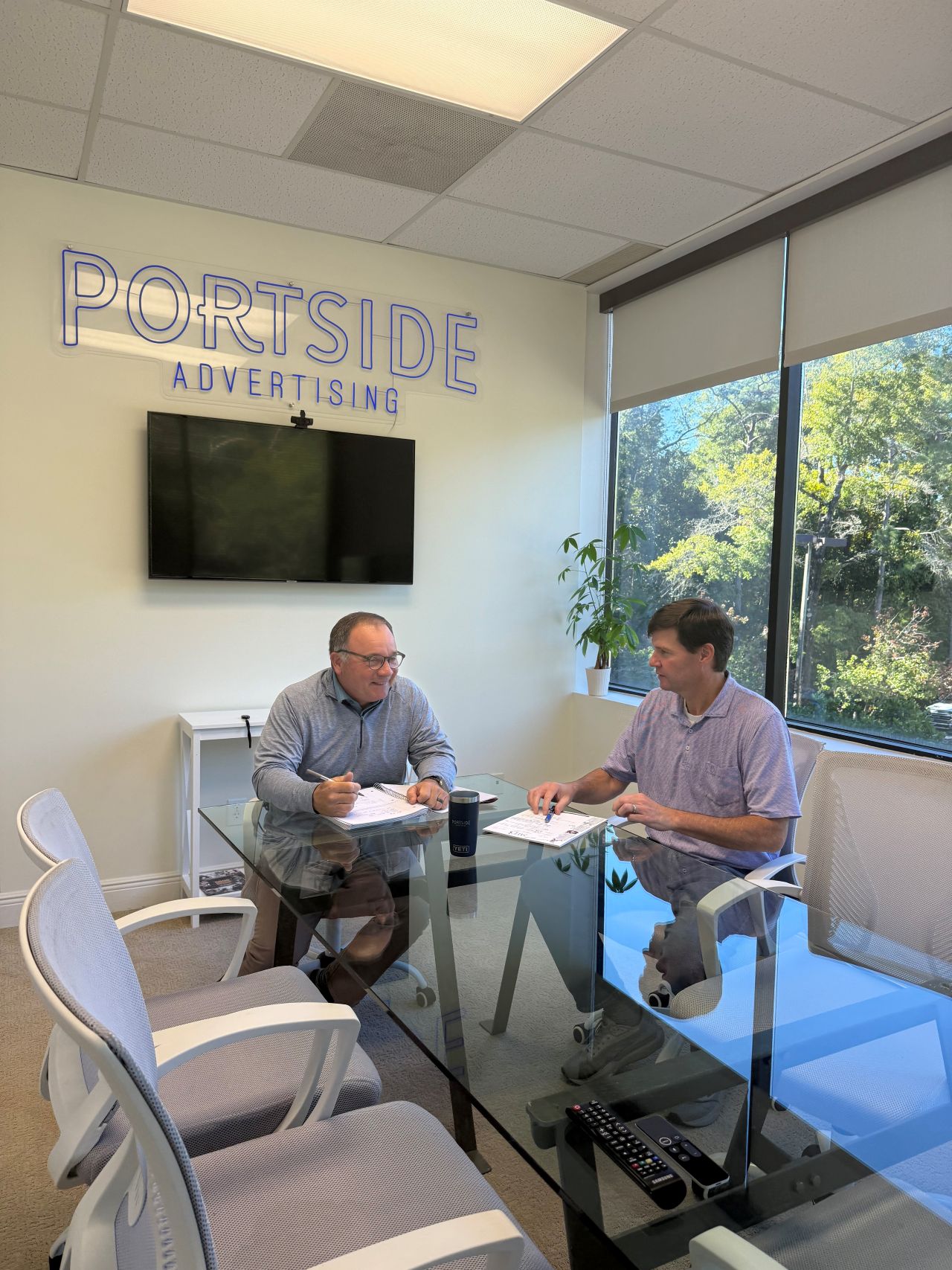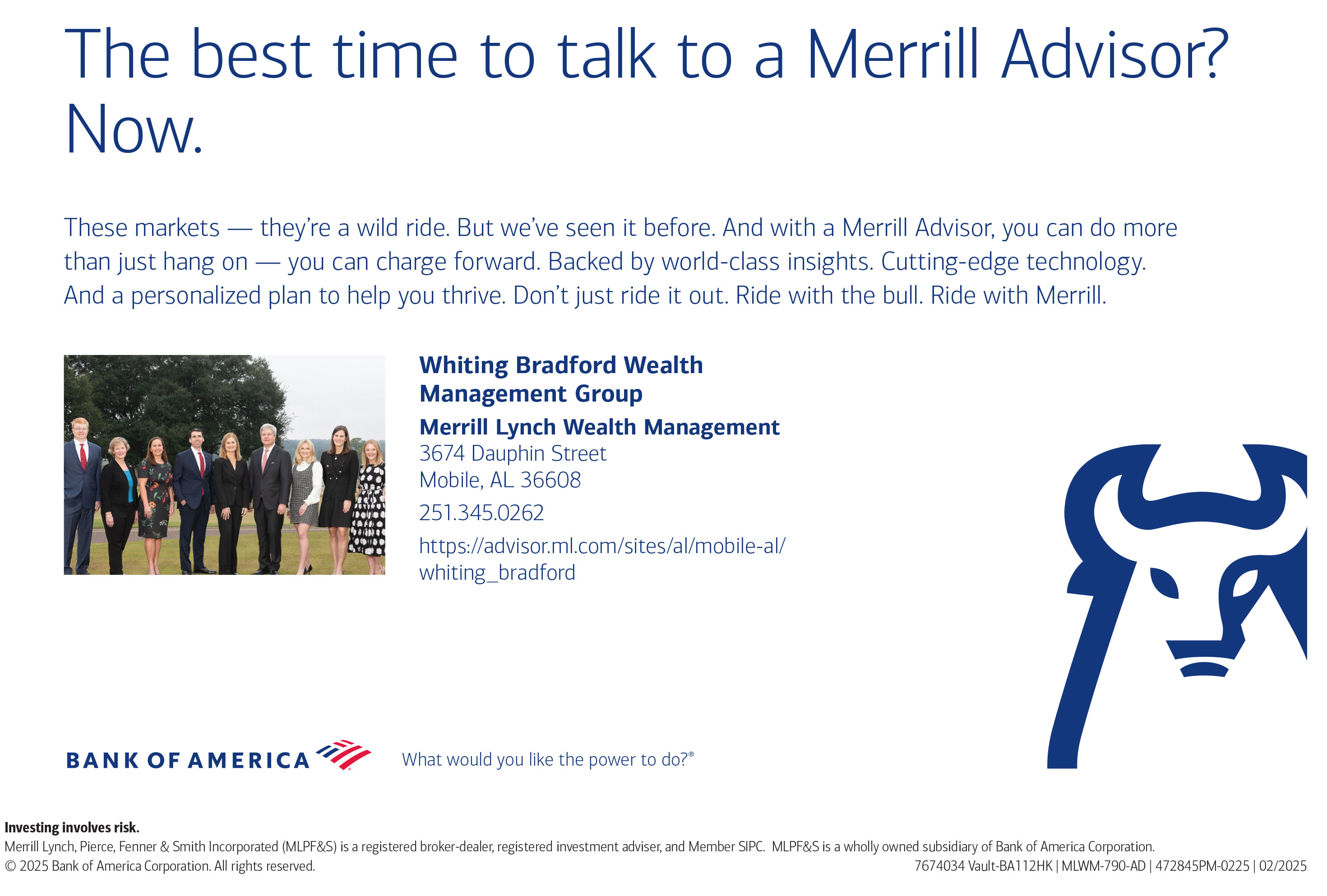
I was recently invited to sit in on a roundtable discussion with the principals of Portside Advertising and three of their long-term clients. The occasion was Portside’s 20th year of being in business, providing clients with advertising counsel and marketing execution. The subjects were how methodology has changed and progressed over the years, and what subsequently, the future holds.
Joe Brown, one of the founding principles of Portside, along with partner, Edward Herndon gathered Dr. Thomas Bender of Advanced Dermatology & Skin Care, Angelo DePaola, founder of The Coastal Connection at eXp Realty in Orange Beach, and Brent Smith, who owns and operates several Aaron Rents stores along the Gulf Coast, to reflect on their experiences working with Portside, and discuss the future.
The way marketing and promotion for small businesses has changed in twenty years was very interesting. Technology is obviously the change agent that has impacted how people get their information. There is also a lot to be said for the generational differences and the challenges facing advertisers in how they connect the message with different segments of the market.
Although he had been in the advertising industry much longer in various capacities, including newspaper ad sales, Joe got the conversation started by saying Portside opened its doors in 2006. “Remember newspapers? When we first started, it was all about billboards, radio, print, and television ads. There were no digital platforms at the time, no Google Ads, and Artificial Intelligence wasn’t even a thing. Now digital is everything."
Angelo spoke about the challenges of building a human connection in today’s world. “Everyone is on their phone. How do you create a brand? It keeps me up at night.” Joe listened and responded, “AI is the future. You can create one video and then have AI generate 50 different versions tailored for a very specific audience, with video and audio for just those people. You are seeing more videos targeting specific markets that include an immediate purchase option. Younger people are used to it and respond.”
Dr. Thomas Bender mentioned how website chatbots are prominent in helping answer questions, making online appointments, and also offering purchase options for health care and beauty products. “AI can take your website, find a voice, and generate a person that resembles someone real. Yet, you don’t want to appear too imposing or too aggressive.”
This led to a discussion about how you build trust. Joe says, “I think you can tell when something AI-generated is fake, but it’s harder and harder to tell the difference.” We discussed the reality that specific advertising messages are generated from what your phone hears you say in casual conversation. Joe says there are settings on your phone that you can disengage, but even then, it seems that messages are being sent from what you have researched or said casually. “It’s uncanny! Ads follow conversations.”
We talked about geo-targeting, a strategy used by businesses to deliver personalized content, advertisements, and offers to users based on their geographic location. These messages can be determined through GPS, IP addresses, or cellular data and allow companies to show relevant promotions to customers in specific areas, like local store openings, or products suitable for the local climate. It’s a form of location-based marketing that’s becoming more prominent.
Brent brings up how the Aaron Rents market has changed over the years. “We relied on top-of-mind name recognition. You don’t need a refrigerator until the one you have stops working. Having a name people trust is important. Our market is now 40% e-commerce. People don’t feel the need to come into a store to purchase. Brand trust is key.”
Generational differences between Gen X, Gen Z, Millennials, and Baby Boomers play a big role in how an effective message is created and disseminated. Influencers are a growing trend and have proven to be effective in building trust among consumers. “Young consumers follow these influencers and trust what they are selling. That’s why you are seeing big consumer product companies rely more and more on influencers to sell products over a recognized spokesperson,” says Joe.
Over the past twenty years, Portside has moved deep into the digital world. Video also plays a larger and larger role in messaging. “Social media is huge. People are on their phones all day. You only have a split second to grab someone’s attention. How do you capitalize on that split second? How do you get someone to see a split-second impression and stop to take a closer look at what you have to offer? That is the challenge,” Joe tells us.
He goes on, “The younger generation doesn’t want to go to a store. They are accustomed to purchasing online, sight unseen. Cars, furniture, and even homes are bought without seeing or touching the product. Influencers and brand recognition play a huge role in building trust. So does word of mouth, people who have had a good experience and are happy to share their experiences through social media. It’s a laying on of hands, so to speak, and it works. It's a different world from just twenty years ago.”
As AI continues to drive the future, it’s being embraced by marketers to address a very splintered market. “It’s an impressive and valuable tool, but it still has its flaws,” says Edward. We all agree. The challenge for advertising the right message to the right audience with general differences requires staying on top of the digital space. That’s where Portside continues to excel.
“The key is to build trust in your brand,” says Joe. “It’s about time management for busy people. How do you customize the message to win in the digital age that changes every day? That’s what we do. Our clients rely on Portside to understand the market and how it is responding to change, and to create effective marketing strategies and solutions that take advantage of tools and trends in today’s digital world.”
Thanks, Joe. That was an informative and enlightening discussion. I appreciate being included!




























